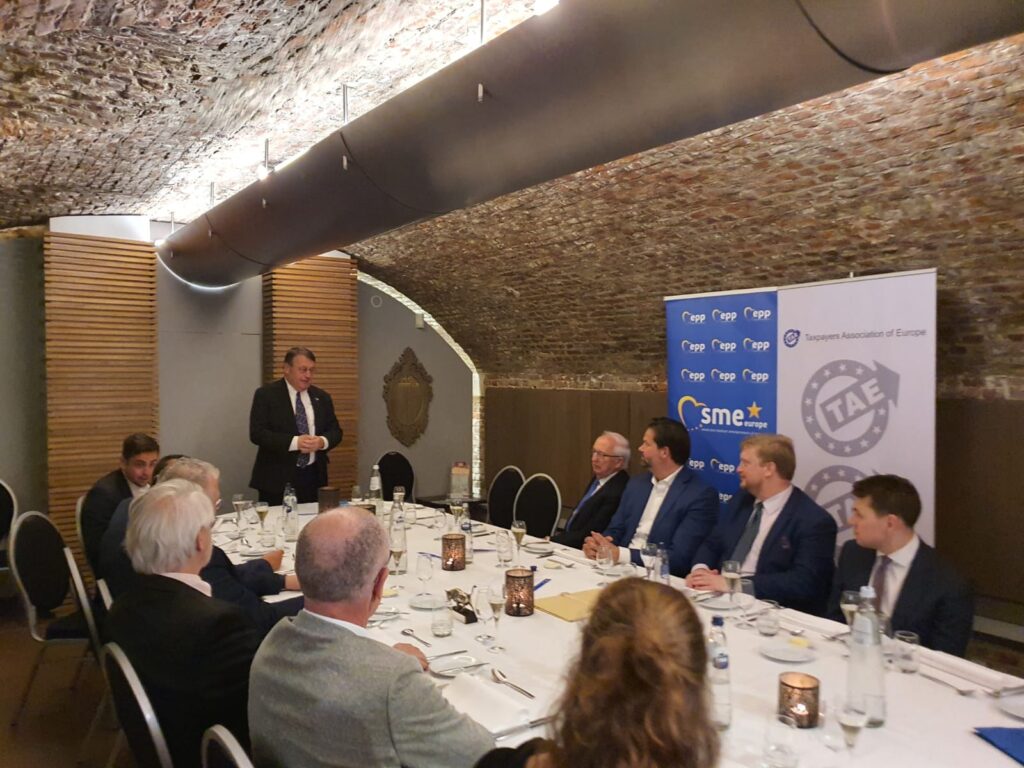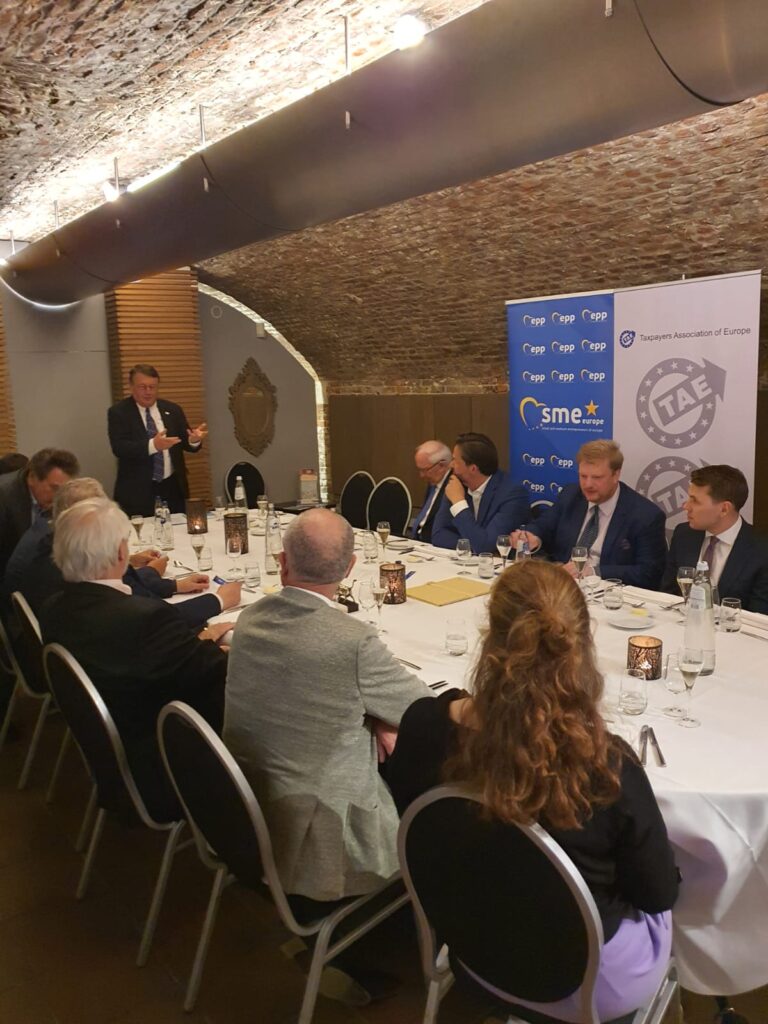“Reasonable European Laws: Less is More”

On Tuesday, July 18, SME Europe hosted a working dinner under the theme “Reasonable European Laws: Less is More” at Restaurant Maison du Luxembourg. SMEs contribute around 50% of taxes in Europe. The level of taxes is a relevant location factor for entrepreneurs of all sizes. But not only the expenditure, but also its use is economically crucial, e.g. for infrastructure, education, research, etc. Tax revenue is also very much linked to the respective economic development. European legislation is now of crucial importance here. SME Europe is in contact with the European Taxpayers’ Association and regularly organizes joint events in order to exchange ideas with the respective experts, decision-makers and those affected. This dinner was under the motto: “Reasonable European Laws: Less is More“ in cooperation with the Taxpayers Association in Europe.
The working lunch was opened by Paul RÜBIG, Honorary President of SME Europe and member of the European Economic and Social Committee. Dr. Rübig emphasized that EU laws should be understandable, legally clear, sustainable and pragmatic. In short: the quality must be high. This requires time and concentration. That is the reason why the legislature should not overwhelm itself.
Rolf von HOHENAU, honorary president of the Taxpayers of Europe, agreed with this opinion. He added that good regulation has a purpose, is necessary and leads to improvement. However, it is important not to overshoot the target and over-regulate with negative consequences for the economy without achieving real added value for the desired politcal goals. This leads to a reduction in tax incomes for the Member States, which are often compensated with new duties or taxes. In most cases, however, this tends to make the tax revenue situation even worse. Economic growth is the best guarantee for sustainable and good tax revenue. It is all about good laws, added Dr. Ingo FRIEDRICH, President of the European Economic Senate. This does not mean regulating everything down to the smallest detail, avoiding double burdens and precisely assessing whether European regulation is necessary or useful at all and what actual effects each has. It must also be understood that regulation must always be seen as a whole. Even if the individual regulations make sense, the sheer volume can overwhelm society and SMEs.
Lukas MANDL, Member of the European Parliament, followed this opening with his keynote entitled: “If it is not necessary to make a law, then it is necessary not to make a law.” (Charles de Secondat, Baron de Montesquieu). He took up the ideas of the previous speakers and emphasized that as a politician you should also have the courage to stop regulations. Successful politics is not just measurable by how many laws are passed in one term of office. On the contrary, this can also have very negative consequences. Quality must come before quantity. You should not overwhelm companies and citizens with a flood of laws, but attention must also be paid to how well society and the economy can absorb these changes within a reasonable timeframe. Necessary actions and goals should not be delayed; instead, they should be approached with prudence and intelligence. Firstly, we need to determine what should be regulated at the European level and what falls within the purview of Member States. Then, there is a need to categorize these needs and establish the correct prioritization. The legislature must be close to practice and do justice to the realities of life. In the end, there must be smart regulation that brings real added value, that people, companies, etc. can understand and implement and that achieves the respective goals without endangering prosperity. The “one in, one out” principle in the EU is important and must be delivered now – in the sense of quality and quantity. That would be a first step towards at least not making the situation worse. The second step must be a radical reduction in unnecessary legal bureaucracy, which will provide lasting relief. Meanwhile, we should slow down with new legislation if it is not urgent.

The speech was followed by an intensive debate among the participants. This requires courage and political endurance.
The evening concluded with the awarding of the Taxpayers Association certificate for outstanding political work in the interests of European taxpayers in Europe to Lukas Mandl.

